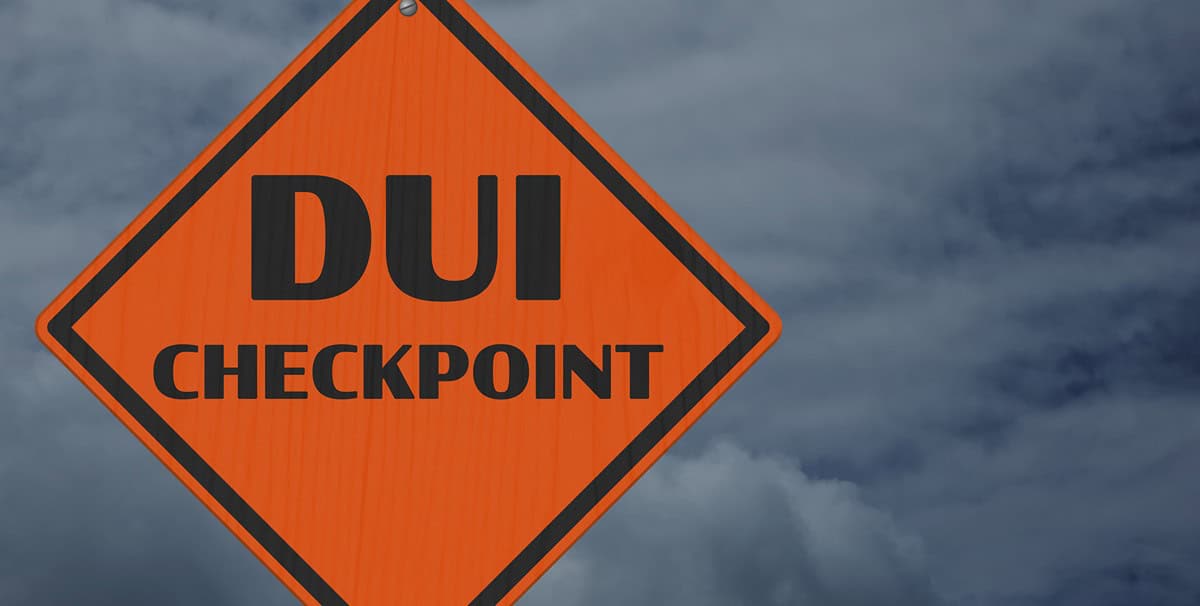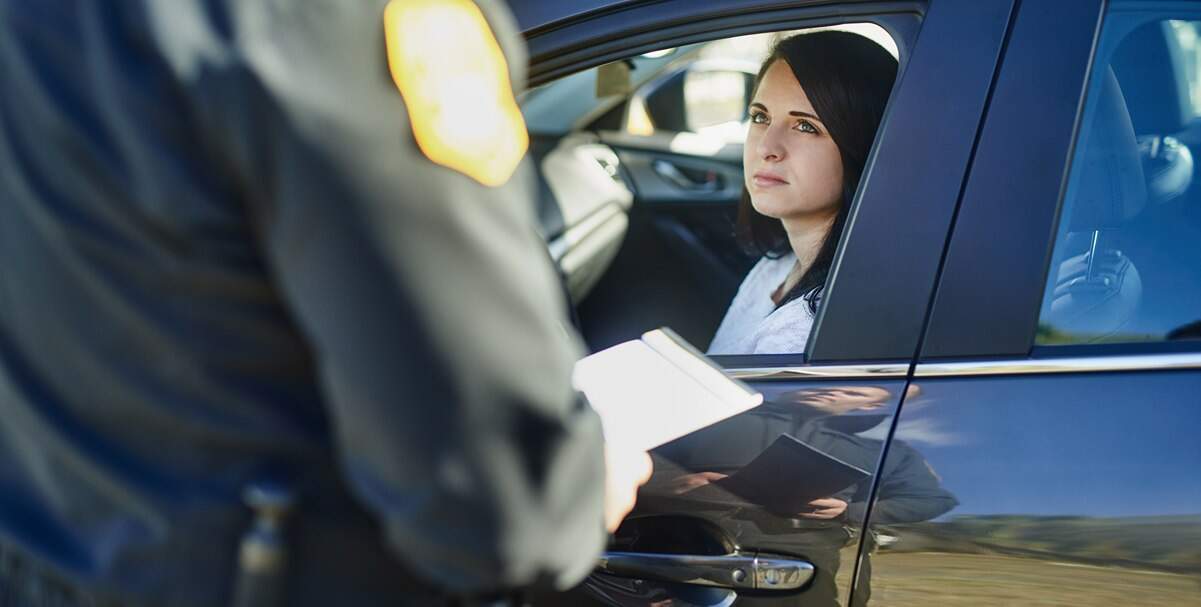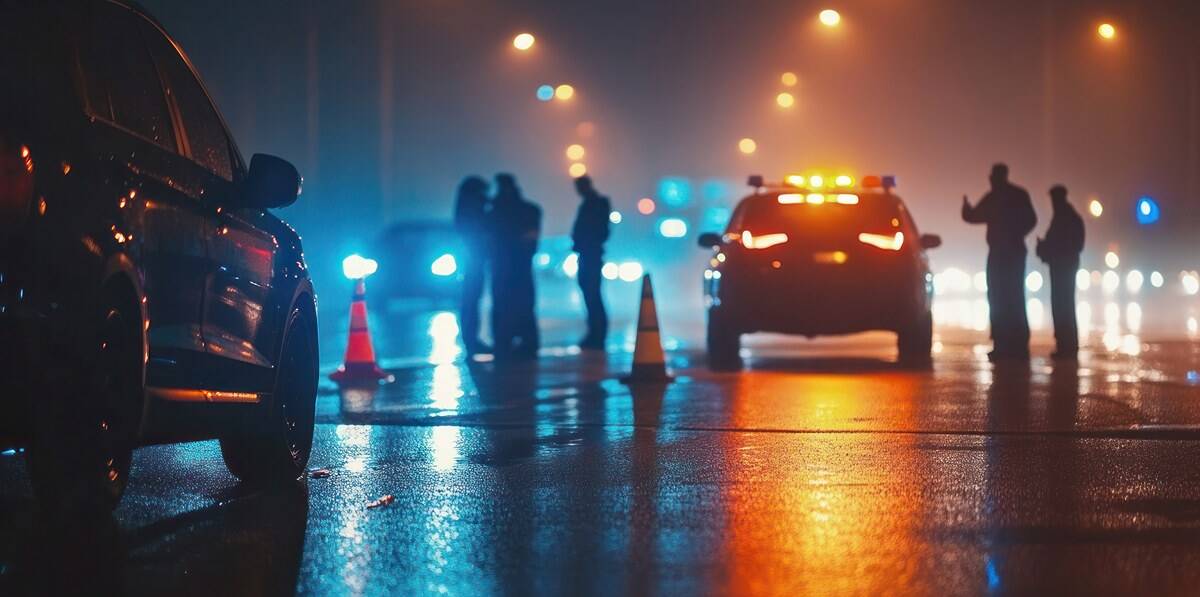Summer in Arizona brings sunshine, road trips, pool parties, and, unfortunately, an increase in DUI arrests at DUI task force checkpoints. Whether you’re in Tempe for a music festival, out in Scottsdale enjoying nightlife, or headed back from tubing down the Salt River, you may come across a DUI checkpoint. These checkpoints are legal under Arizona law and are often deployed during summertime holidays, such as Memorial Day, the Fourth of July, and Labor Day.
Getting arrested for DUI at a checkpoint is not uncommon, and knowing your rights is essential. Arizona law enforcement agencies coordinate with the Governor’s Office of Highway Safety and the Arizona Department of Public Safety (DPS) to increase DUI patrols and set up sobriety checkpoints during the summer months. These operations are highly publicized and strategically located, especially in areas with high traffic or known drinking establishments. If you are stopped and arrested at a DUI checkpoint, it’s essential to understand your rights and the following steps to take.
This article explains what happens during a DUI checkpoint stop, the laws that apply in Arizona, your rights during a field sobriety test, potential penalties for a DUI conviction, and how an experienced DUI defense attorney, such as Arja Shah, can help protect your record and freedom.
- What is a DUI Task Force Checkpoint in Arizona?
- Can You Legally Be Stopped at a DUI Checkpoint?
- What Happens During a DUI Checkpoint Stop?
- Field Sobriety and Breath Test Procedures
- Penalties for a DUI Conviction in Arizona
- Real-World Arizona Examples: Tempe, Mesa, Scottsdale & More
- Defense Strategies Used by Shah Law Firm
- FAQs About DUI Checkpoints and Summertime DUI Arrests
- How a DUI Defense Attorney from Shah Law Firm Can Help
What is a DUI Task Force Checkpoint in Arizona?
A DUI checkpoint, also known as a sobriety checkpoint or DUI roadblock, is a temporary location where law enforcement officers stop vehicles to check for signs of impairment. These checkpoints are frequently used during the summer months when alcohol-related driving increases.
In Arizona, DUI checkpoints are coordinated through the Arizona DUI Task Force, which is made up of local police departments, county sheriff’s offices, and the Arizona Department of Public Safety. These operations are funded in part by the National Highway Traffic Safety Administration and are intended to reduce impaired driving incidents.
Arizona Law on DUI Checkpoints
Arizona law permits checkpoints, provided that law enforcement agencies adhere to strict guidelines to avoid violating constitutional rights. Police must use a neutral formula to decide which cars to stop (e.g., every third car), and checkpoints must be clearly marked and publicly announced in advance.
The legal basis for these checkpoints stems from both Arizona DUI laws and U.S. Supreme Court rulings, which allow them as exceptions to the Fourth Amendment, provided they follow procedural safeguards.
Can You Legally Be Stopped at a DUI Checkpoint?
Yes. Police can legally stop you at a checkpoint in Arizona, even without specific suspicion of wrongdoing.
This is one of the few exceptions to the standard rules that require probable cause for a traffic stop.
However, your constitutional rights still apply.
Police must keep stops brief unless they observe signs that you may be impaired due to alcohol or drugs.
These signs might include:
- Slurred speech
- Odor of alcohol
- Red or watery eyes can be indicators of impairment due to drugs or alcohol.
- Open containers in the car are often considered evidence of drunk driving.
- Confused or nervous behavior
If officers suspect you’re impaired, they may ask you to perform a field sobriety test or take a breath test. At this point, the situation becomes more serious, and you should exercise caution in what you say and do.
What Happens During a DUI Checkpoint Stop?
When you’re stopped at a DUI checkpoint, here’s what typically happens:
- An officer will ask for your driver’s license and registration.
- You may be asked a few questions about where you’re going or if you’ve had anything to drink.
- If no signs of impairment are observed, you will usually be allowed to proceed.
- If there are signs of impairment, you may be directed to a secondary screening area, where a criminal defense attorney can help you know your rights.
- In that area, you could be asked to perform field sobriety tests or a breath test.
If your BAC (blood alcohol content) is over 0.08%, you may be arrested for DUI under ARS 28-1381. Arizona also has strict zero-tolerance policies. This applies for drivers under 21 and for any level of impairment that affects driving ability, even if BAC is below the legal limit for driving under the influence.
Field Sobriety and Breath Test Procedures
Field sobriety tests (FSTs) are designed to check coordination, balance, and attention.
These may include:
- Walk-and-turn
- One-leg stand
- Horizontal gaze nystagmus (eye test)
Breath tests, like the preliminary breath test (PBT) or Intoxilyzer 8000, estimate your BAC. If you refuse the test, Arizona’s Implied Consent Law mandates that drivers consent to testing for drugs or alcohol if suspected of DUI. ARS 28-1321 allows the state to suspend your driver’s license for one year—even if you’re not ultimately convicted.
It’s important to note: being charged with a DUI can have serious consequences.
- FSTs are voluntary, though officers rarely say this clearly, especially regarding your rights during a DUI stop.
- Refusing a breath test has automatic penalties.
- Portable breath tests (PBTs) may not be admissible in court, but evidentiary breath tests taken at the station can be.
Penalties for a DUI Conviction in Arizona
Arizona imposes some of the harshest DUI penalties in the nation, even for a first-time offense.
Below is a table summarizing common penalties:
| DUI Offense | Penalties | Relevant ARS |
|---|---|---|
| First DUI | 10 days jail (9 suspended), $1,250 fine, license suspension, ignition interlock | ARS 28-1381 |
| Second DUI | 90 days jail, $3,000 fine, 1-year license revocation, interlock | ARS 28-1381 |
| Extreme DUI (BAC ≥ 0.15%) | 30 days jail, $2,500 fine, license suspension, interlock, alcohol education | ARS 28-1382(A)(1) |
| Super Extreme DUI (BAC ≥ 0.20%) | 45 days jail, over $3,200 fine, 18-month interlock | ARS 28-1382(A)(2) |
| Felony Aggravated DUI | Prison time (4 months+), long-term license revocation, probation | ARS 28-1383 |
Real-World Arizona Examples: Tempe, Mesa, Scottsdale & More
- Tempe: ASU students returning from Mill Avenue were stopped at a DUI checkpoint during the Fourth of July weekend, highlighting the prevalence of drunk driving enforcement. Multiple arrests occurred due to underage drinking and open containers.
- Scottsdale: Old Town nightlife hotspots regularly see DUI checkpoints in the summer, mainly after midnight. Drivers stopped for minor infractions were asked to submit to field sobriety testing, which can lead to being charged with a DUI if not handled correctly.
- Mesa: During the Labor Day DUI task force, several drivers were pulled over near Fiesta Mall and Dobson Road for BAC levels slightly above the legal limit.
- Chandler: Police set up a checkpoint near downtown during a summer concert series. Many drivers were tested for marijuana-related DUI based on odor or appearance, though several were later released due to lack of impairment evidence.
Defense Strategies Used by Shah Law Firm
Arja Shah and the Shah Law Firm team have successfully defended thousands of DUI cases by identifying weaknesses in the arrest process or the prosecution’s case. Common strategies include:
- Challenging the legality of the checkpoint – Officers must follow strict rules when setting up a DUI checkpoint. If they didn’t, the stop may be unconstitutional.
- Questioning the field sobriety tests – Poor lighting, medical conditions, or nerves can all affect performance.
- Attacking the breath or blood test results – Machine calibration, chain of custody errors, or contamination may render results inadmissible.
- Unlawful arrest procedures – If Miranda rights weren’t properly read or probable cause was weak, evidence could be suppressed.
- Rising BAC defense is a common strategy used in drunk driving cases. – Alcohol level may have been under the limit while driving but rose by the time of testing.
Attorney Arja Shah has nearly 20 years of experience in DUI defense. She knows how to uncover errors and present strong arguments to reduce or dismiss DUI charges entirely.
FAQs About DUI Checkpoints and Summertime DUI Arrests
- Can I avoid a checkpoint by turning around?
- Yes, but only if you do so legally. An illegal U-turn or sudden behavior change may give the police a reason to pursue.
- Are DUI checkpoints allowed in Arizona?
- Yes. Under Arizona law and court rulings, DUI checkpoints are legal as long as the necessary procedures are followed, which is crucial for a solid criminal defense.
- What if I refuse a breath test?
- Refusal leads to a one-year license suspension under Arizona’s implied consent law—even without a DUI conviction.
- Do I have to take field sobriety tests?
- No. Field sobriety tests are voluntary, and refusing to take them cannot result in automatic penalties.
- Can Shah Law Firm help if I was arrested at a checkpoint?
- Absolutely. Arja Shah offers complimentary DUI consultations and can develop a tailored defense strategy for your case.
- Absolutely. Arja Shah offers complimentary DUI consultations and can develop a tailored defense strategy for your case.
How a DUI Defense Attorney from Shah Law Firm Can Help
If you were arrested for DUI at a summer checkpoint in Arizona, do not assume your case is hopeless. Arja Shah has handled thousands of DUI cases throughout Phoenix, Mesa, Scottsdale, Tempe, Chandler, and beyond. She knows what it takes to successfully challenge checkpoint stops, breath test results, and field sobriety exams with the help of a criminal defense attorney.
With nearly 20 years of legal experience and over 3,000 case victories, Arja Shah has established strong relationships with local prosecutors and has a comprehensive understanding of the DUI court process. Whether your case involves alcohol, prescription drugs, or marijuana, Shah Law Firm can provide aggressive and skilled defense.
Every case starts with a free one-on-one consultation with Arja Shah herself—not a junior associate. You’ll get clear answers about what to expect and how to fight back against DUI charges.
Call Shah Law Firm today at (602) 560-7408 or visit arjashahlaw.com to schedule your free consultation with attorney Arja Shah.








